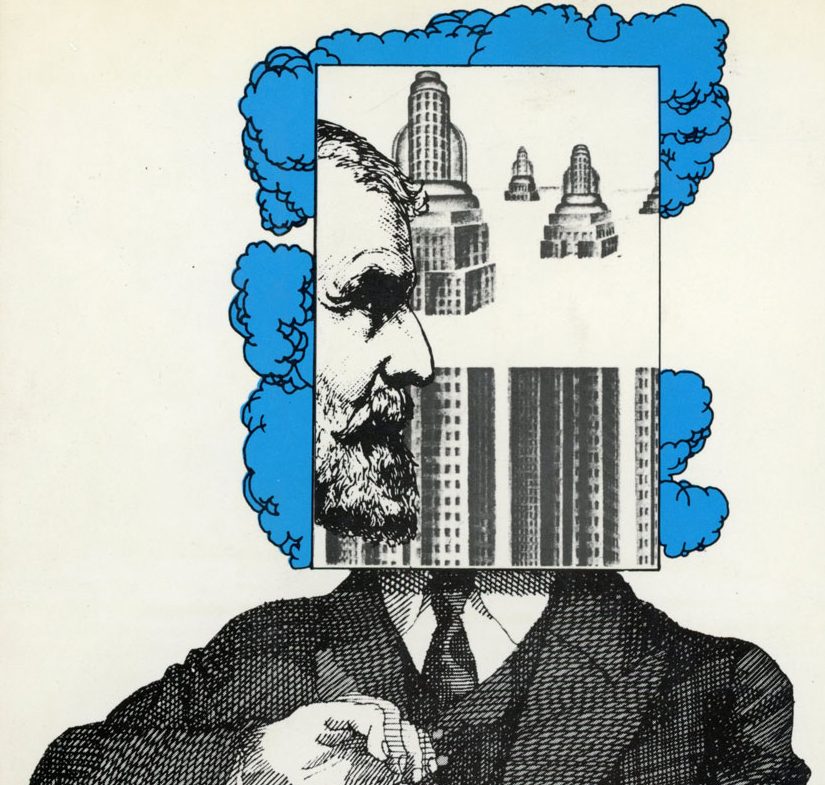
In Ursula K. Le Guin's The Lathe of Heaven George Orr is treated by the psychiatrist William Haber. Orr is an effective dreamer. Whatever he dreams becomes reality. But he remembers the reality that existed before his dreams. So, he's viewed as a madman, talking about multiple realities that never existed. Haber uses a machine to increase the strength of Orr's effective dreaming and the alteration of reality increases. Weird notches up rather quickly. Aliens appear as a result of one dream. The nuclear destruction of all human society occurs in another. Haber starts using his machine to create effective dreams to change reality and a battle of effective dreaming ensues. Orr's ability to effectively alter reality proves stronger than Haber's. And Orr is able to return reality to a state that's somewhat normal by the end of the book.
Thinking Changes Reality
The Lathe of Heaven comments on one hand, on human determination and will to effect change. The mere act of thinking of how things could be is a great piece of the work of affecting reality. We live on foundations built of dreams. On the other hand, The Lathe of Heaven considers the instability of the systems humans conceive of and create. It considers the limitations of human thinking.
Blind to Everything Except Color Blindness
When Orr tries to remove racism from human history, the result is that everyone turns a nondescript gray color. This solution suggests that humans are incapable of not seeing differences between others. The only cure for racism is for no differences to exist. Acceptance and appreciation is not a possibility.
Ode to PKD
Le Guin wrote The Lathe of Heaven as a paean to Philip K. Dick. The primary questions that PKD pursued in his fiction center on the stability of reality, the stability of mentality, the meaning of consciousness, the limits of human awareness, and whether our systems and the fabric of space and time is even rational. Perhaps we live in a nonrational reality. Perhaps humans are nonrational. Maybe human consciousness is piggybacked to a survival mechanism, meaning that humans have no more free will, rationality, or consciousness than a goldfish. If this is true, then the first principles of western philosophy are wrong. Rene Descartes connection between thinking and existence false, the mind operates on a program. In this arrangement, we can rearrange the cogito and get a more accurate expression of human reality: I am, therefore I am supplied with thoughts.
Perhaps our perceived consciousness is merely an evolutionary safety feature of homo sapiens meant to convince us of a degree of self-importance that would lead us to be more careful, to take fewer risks, and thus live longer. Consciousness could be nothing more than a complex awareness watching a highly refined reflex system responding instinctively to everything from simple needs to more complicated desires. So much of the human system operates beneath the radar of "consciousness," giving merit to questions of what control humans actually have. This model of human consciousness could well be described as "effective dreaming." Our consciousness is nothing more than a dream made real by our central nervous system. If this is true, then our dreams are the most real experience we have. If consciousness is a feedback loop created by the brain as a safety measure--a trick of cold intelligence--then it is only when the mind is shut off from sense experience of the outer world that its pseudo-generated consciousness would have free reign to explore the symbolic realm.
You might argue that if you're able to think through this issue, that proves it's false. But is that true? Certainly, the answer might be simpler. And this last little thought is closer to what I think the human is. The human brain is comprised of very different parts that play very different roles. The amygdala, or lizard brain, rests at the base of the brain and is responsible for the fight or flight syndrome. This part of the brain always measures what our reaction should be before filtering through more complex reasoning functions that take longer to process. In situations demanding near immediate responses, the amygdala is a lifesaver. It's easy to live in the space of reacting. The human is designed to react. But the human is also designed to reason--just not first. Our awareness to external stimuli is always filtered through a reactionary mechanism.
What do you believe? Is your belief real or a construct? Are humans effective dreamers or merely dreamers?
Ready for more Rapid Transmissions?
Check out our list of the top 100 Science Fiction Novels
Also, look at our list of the top 100 Science Fiction Movies
2001: A Space Odyssey - Arthur C. Clarke
Kim Stanley Robinson's Red Mars
Aliens: The Military-Industrial Complex, Masculinity, and Body Horror